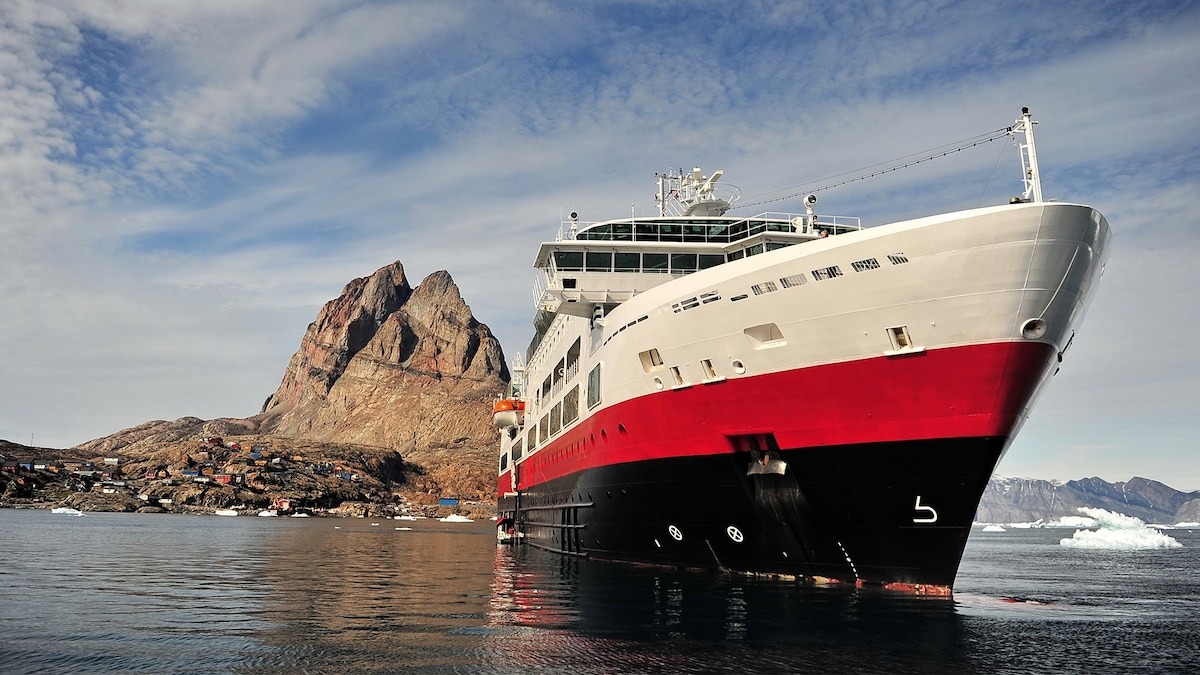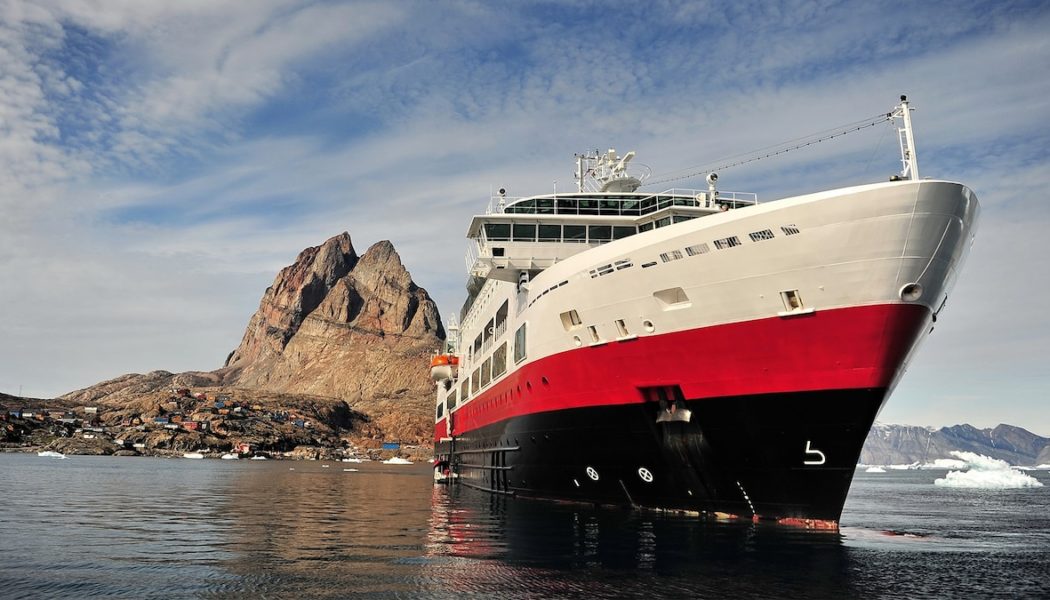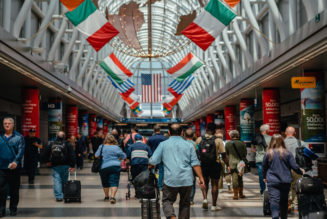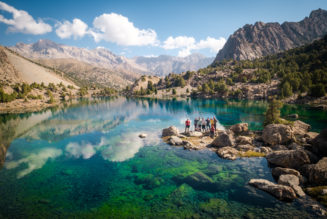
This article was produced by National Geographic Traveller (UK).
The pandemic has a lot to answer for, not least creating an insatiable appetite among travellers to see more of the world — alone or accompanied. As travelling without a companion becomes increasingly easy, one of the fastest growing markets for solo travel is cruising — and with the industry embracing this demographic, it’s easy to understand why.
“Solo travellers love the freedom to leave the ship and explore, but with the safety and comfort of returning to the crew and fellow travellers at the end of the day,” says Hazel McGuire, general manager of Intrepid Travel, which caters for the solo market. “It’s a misconception that all solo cruisers are single. Many just have different interests to their partners.”
Cruising aside, solo travel has exploded and shows no signs of being a post-pandemic fad. Skyscanner reports that more than half of its users (54%) this year were considering travelling alone, while similar research by rival travel search engine Kayak shows 36% more searches for solo flights in 2023 compared with 2022. And when it comes to cruising, independent cruise agency Planet Cruise recently released data to show a 36% increase in solo cruises in 2023 — with more than half of those people seeking adventure.
Men and women travel for different reasons, according to search engine Opodo, with men wanting to meet new people and women on a voyage of self-discovery, as well as wanting to explore.
In 2010, Norwegian Cruise Lines (NCL) was one of the first to offer solo ‘Studio’ cabins and accompanying Studio lounges for single travellers. In January this year, NCL published research that showed two-thirds of respondents booked solo trips either to ‘have a break’ or ‘treat themselves’. One in five (17%) had booked a solo cruise to reconnect with themselves after a relationship breakdown and a similar number cited reasons such as not having to deal with annoying habits of companions. Gary Anslow, head of UK and Ireland business at NCL, said: “We can see from the survey that enjoying the beauty of travel on your own enables a truly authentic experience and provides for self-discovery and growth. Plus, meeting fellow solo travellers can even lead to long-lasting friendships.”
Cabin fever
For the most part, solo travellers equal frequent travellers, so cruise liners are working hard to capture this growing audience by reducing or dropping single supplements, building ships with single cabins and introducing activities and hosts specifically for independent travellers.
“Cruising is a holiday type where solo travellers have been well catered for,” explains Dave Mills of tour operator Iglu Cruise. “Once upon a time, this might have been dance hosts to provide companionship, or shared cabins for single travellers, but now, there’s so much more. The larger companies are expanding single cabin options, as are the more boutique lines, too,” he adds. Jeremy Clubb, founder of Rainforest and Antarctica Cruises, says single travellers are now being considered properly.
“Historically, I think it’s fair to say single travellers got the short end of the stick — not just from a financial perspective but also by being allocated small cabins and generally being considered second-class citizens,” he says. “Thankfully, this is becoming a thing of the past as the booming trend in solo travel, especially post-pandemic, has caused operators to take note of the benefits of having solo clientele in their passenger mix.
He goes on to add that these days, the latest vessels are being designed to feature single cabins, offering solo travellers the same level of service, privacy and comfort at the same price as anyone else.
“Some ships now even choose to dedicate double cabins for single occupancy — particularly on cruises in the Galápagos National Park where there are strict guest-to-guide restrictions.”
Looking more closely at the numbers, options on single cabins are encouraging. Norwegian Cruise Lines is still out ahead, offering 128 Studio cabins on Epic, 82 on Bliss and 59 on Breakaway; adults-only line Virgin Voyages has 40 interior cabins for singles on its superyacht-style ships Scarlet Lady, Valiant Lady and Resilient Lady; with Fred Olsen now offering 65 single cabins on Balmoral, 49 on Borealis and 43 on Bolette. These solo cabins aren’t only increasing in number but also variety, with accommodation on premium decks and featuring balconies. Sizes still vary though; NCL’s Studios are an average 100sq ft (many without windows), while Holland America Line’s newest ships, the Koningsdam, Rotterdam and Nieuw Amsterdam, offer staterooms between 127 and 172sq ft, and Royal Caribbean International has staterooms for solos of up to 199sq ft — sometimes offered without single supplement fees, too.
The UK’s largest river cruise provider, Riviera Travel, sells sole-occupancy cabins with no single surcharges across its entire collection, and also dedicates entire ships for solo travel. In 2024, it’ll run eight solo traveller itineraries across 11 departure dates, including voyages down the Rhône, Rhine, Danube and the Seine.
“Our experience is that people of all ages are increasingly travelling the world alone for the first time because solo exploration and adventure can grow self-confidence whatever stage a person is at in their life,” says Riviera Travel CEO Phil Hullah. The range of organised social events and activities from quiz nights to hikes is a big draw for solo travellers, as is the safe atmosphere on the ships and camaraderie of fellow passengers.
Doing it alone
Just before the pandemic, Keith Perry, now 60, took a two-week cruise to Greenland with Quark Expeditions where, he says, everyone was like-minded.
“We had ages ranging from 30-80, but everyone had a spirit of adventure. Every morning, we’d look out at a new scene and would chat excitedly over breakfast about what the day had in store.
“I also loved meeting people from different backgrounds. And watching the Northern Lights — albeit at 3am — was the best ‘fireworks’ show I’ve ever been to.”
The new kid on the block, luxury cruise line Explora, has devised its Solivagant Society for independent travellers, a complimentary group to connect solo travellers for various activities, events and experiences throughout their journey. One of the biggest barriers to solo travel is the cost. Having to pay the same price — or more — for a cabin designed for two is out of reach for many and while solo cruises are becoming more affordable, just beware of the small print.
Some, such as Hurtiguten, offer select voyages with no single supplement at all, while others market single cabins for solo travellers but still charge double what they would a couple. A sea view cabin on the Virgin Voyages French Riveria and Ibiza Nights cruise, for example, costs from £320.29 for one guest, while the same cabin costs from £160.14 based on two sharing. Among those slashing their single supplements on selected sailings are Silversea Cruises and Azamara, both of which offer single supplements of between 25-50% of the double occupancy rate. And then there are the special promotions worth looking out for — often run between a cruise line and a particular travel agent. But Dave Mills of Iglu Cruise explains how to get the best price for a solo cruise — either book early or late.
“Either book when the brochures are launching and itineraries are just going on sale, or wait until the last minute when cruise lines will offer empty double-occupancy cabins without a single supplement,” he says. “Of course, both options have their pros and cons and both can be daunting, but do your research and work with a good tour operator and you’ll find the right trip.”
To subscribe to National Geographic Traveller (UK) magazine click here. (Available in select countries only).









